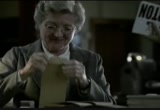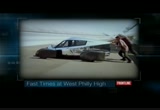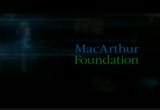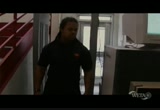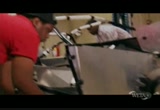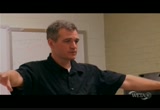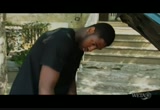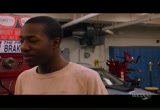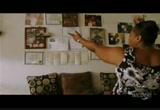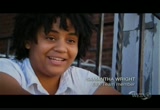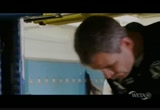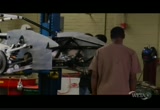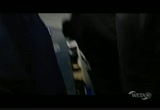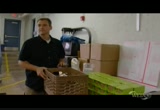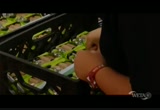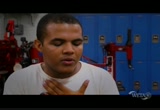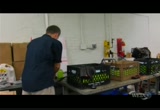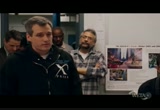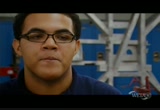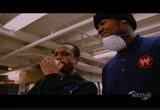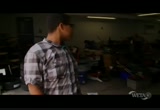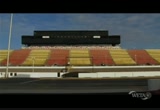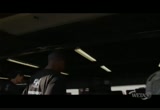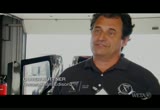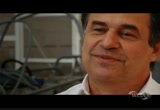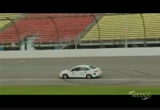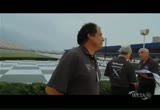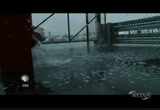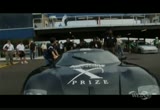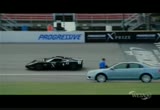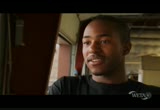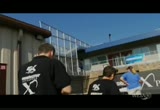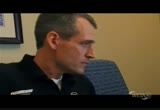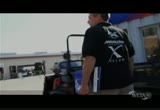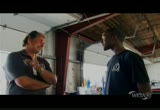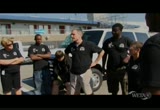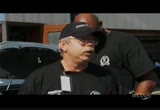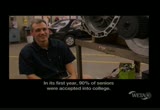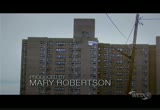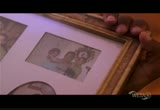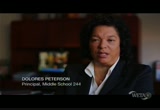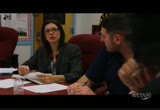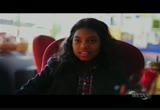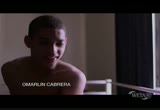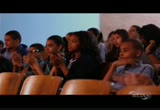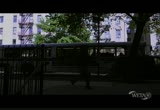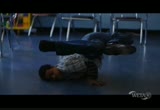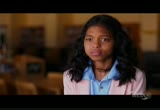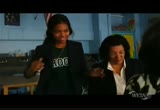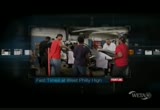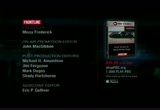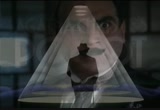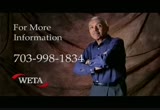tv Frontline PBS July 19, 2012 3:30am-4:30am EDT
3:30 am
>> tonight, two stories on ths special edition frontline. first, fast cars... >> we do want to change the automotive industry, as delusional as that sounds. >> ...smart kids... >> no one expected a hybrid sports car to be made by a high schooler. >> ready, two, three. >> my work with the evx team has made me want to come to school more. it gave me something to care about. >> ...and a $10 million prize. >> pride and joy of west philly high. >> this is really a global competition.
3:31 am
>> we've done something that million-dollar corporations haven't done. >> an inspiring look at "fast times at west philly high." and in our second story tonight... >> at the beginning, i just isolated myself from everything and everyone. >> there is a national crisis in the nation's high-poverty middle schools. >> what if you could change te future for kids on a fast track to dropping out of school? >> it was imperative on my part as a homeroom teacher to discuss why she was coming in late. >> the fact the she believed in me, i believed in me. >> taking advantage of the "middle school moment." >> any school can use this system to keep kids on track. >> these two stories on this special edition frontline. >> frontline is made possible by contributions to your pbs station from viewers like you. thank you. major funding is provided by the john d. and catherine t.
3:32 am
macarthur foundation, committed to building a more just, verdant and peaceful world. and by reva and david logan, committed to investigative journalism as the guardian of the public interest. additional funding is provided by the park foundation, dedicated to heightening public awareness of critical issues. and by tfrontline journalism fund. major funding for this program is provided by the bill and melinda gates foundation. and by the corporation for public broadcasting and its american graduate initiative for "middle school moment."
3:33 am
>> be good. >> i won't. >> yeah, i know. >> my ninth grade year was probably the worst because i was constantly being beaten up and, you know, jumped and everything. i was pretty much an outcast. constantly in the office, like, literally every day. there were jumpings. somebody at the school got stabbed with a protractor and that was, like, the first two or three weeks of school. >> tenth grade year, i was only at school for a month, and that was just an accumulated 30 days, not even a month straight because i had to babysit for my younger sister while my mom was at work. so, i missed a complete year of school. truancy never knocked on our door, never gave us letters, never did anything. (sirens) >> it's disgraceful what is going on in public education in philadelphia. in most large urban cities, 50% of the kids are dropping out.
3:34 am
almost every large urban district is dysfunctional. philadelphia is at the highest level of dysfunction. there was a need to engage students. the normal curriculum is boring, and kids are disinterested. today what we are going to do, the first thing is we are going to move the gt over here. all right? ready-- one, two, three. so, the evx team is an afterschool program. we build and design hybrid and electric vehicles. we had success the very first year. the students won the local science fair which was a first for... for students from west philadelphia high school. from there, it just organically grew. >> here, put it over here. the mission of the evx team this year is to be serious competitors in the automotive x prize.
3:35 am
the automotive x prize is a $10 million competition that's invited teams from around the world to develop viable vehicles that get over 100 miles per gallon. we're the only high school in the world that has thrown our hat in the ring. >> to all the other teams in the x prize competition, you are going to lose. >> you know, we tell kids you can do anything, and as adults we know that there are limits. but we started to feed into it-- "yeah, we can do anything." what's the purpose of the progressive automotive x prize? yes? justin? >> to cause people to go into competition so that they can create something new and better for the environment. >> excellent. so, we're building two cars. the significant points are they use alternative fuels, they get over 100 miles a gallon, and high school students built them and they're being entered in this huge competition. but, at the top of this, we're building cars to demonstrate that... i was working in the lab at
3:36 am
general electric, and i just kind of had an epiphany that this isn't what i wanted to do with my life. it was a series of events and i ended up feeling like i wanted to be a teacher in the city. and what's the mission of the team? i grew up a couple blocks from west philadelphia high school, so yeah, the issues of the city are very near and dear to my heart. the team ranges from all-stars in the classroom to students who really struggle. there is room for everyone, and we have all sorts of types of students, and that's one of the things i'm really proud about. >> beginning of last school year, i cut every single class. i'm not even gonna lie. i was just the guy that showed up when i wanted to show up. >> say, all right, justin... >> my life wasn't going the way i expected it to, so if nobody was gonna care, why should i? >> i truly believe that without the evx team, i don't know if he would've been able to survive the 11th and 12th grade years
3:37 am
in public school. >> mom, you're gonna want to put some oil in the car. >> what about trans? the evx team was a saving grace for him. they basically blanketed him with attention, with understanding, and with affection, you know. they cared. >> my work with the evx team has made me want to come to school more. it gave me something to care about. >> this is the k1 attack, the pride and joy of west philly high. we plan to do it again with our next car, but this here... i mean, the first time i ever seen this car, it was my ninth grade year. i remember it was, like, my first day of school. i came walking through the shop, and i didn't expect to see a racecar here. and i fell in love with it then, and that's... that's why i had to join the ev team. like, who built this car? they said it was built here.
3:38 am
as high school students, we can be innovative. we can be just as innovative as the ceos of ford, gm, honda, nissan. we can be just as innovative as them. and we don't even have diplomas yet. >> yo! i'm home. you know, i don't want my children to do the job that i'm doing. i want them to have better because they are better than me. and i know they're better than me. therefore, my job is just-just to give them the umbrella, you know, to grow, to do whatever you want to do. what's up, what's up, what's up, what's up, what's up? >> this is jacques as a little guy. and as you'll see, quite a few of the awards that he has received. the ford motor company. student auto skills. the west philadelphia hybrid x team. honor roll, mathlete.
3:39 am
he's student of the month. >> jacques just started running, he started running with it. and it was, it was, it was like he became a leader without knowing he was a leader, which is a great thing. to be honest, the things that he's doing is making me... actually inspires me in a lot of ways. it's taught me how not to give up, to be a fighter. don't give up, no matter what happens. don't give up. and i love him for that, love him for that. uh, yeah, i love him for that. yeah. >> i'll see you, dad. >> all rht, be good, man. >> usually, it tends to be the oddballs and the smart ones who drift towards the team because the opportunities they offer, so that's why the evx team is filled with a bunch of odd guys and smart people.
3:40 am
i went back to school. essentially they put me in remedial classes because of my absences. one day, while getting bored of these, you know, multiplying fraction worksheets, cut class and i saw hauger in the hallway. and hauger's like, "what the hell are you doing in here?" it's like, "well, they put me in opp." he shook his head, and was like, "you know what? come to auto after school and, uh, i want to talk to you." hauger, that day, changed my roster to put me back into auto and... on the conditions that, one, i pass my classes and, two, i join the ev team. you know, that's the crappiest tape job i've ever seen. >> you're all fired. >> she was a student who was on the verge of literally failing. and we brought her over here, sort of adopted her into the family, and then, you know, we
3:41 am
realized that samantha was a bright young lady who just needed support and a group of caring adults around her to really help her find her way. to see samantha go from failing grades to a student who made the honor roll is hard to really capture into words. >> i'd say they believed in me, essentially. and that's changed my life because if i would've continued in west, i would've totally, completely dropped out because i wasn't learning in the classes they had me in. >> that's this, right? you guys have got that part figured out. intelligence is exhibited in so many different ways. students need to be engaged in different ways. we're entering two vehicles in the x prize. we are under a really tight timeline.
3:42 am
we have one year to get these cars built and track-ready. it's a tall order. >> the gtm is just basically our fun car. you know, the cool car that people will love to drive, but it's a hybrid, so that's, like, a double bonus. basically, we put more of the young people's point of view inside the car. >> the gtm, i mean, zero to 60 in under five seconds. you know, top speeds of about 180. 250 horsepower. i don't think there's any other hybrids with statistics like that. the focus, the family car that we're entering in the competition, it's probably the only ford focus with a motorcycle engine in it. it's a motor... it's a "harley hybrid," as some people call it. we have a harley davidson engine in it, and an electric motor. >> simon is... he's completely
3:43 am
crazy. there is nothing that he thinks we can't do. i mean, who the hell else would've thought of using a harley davidson engine and a magnetic clutch from a combine coupled to an electric motor? the answer to that question is no one. >> this is the original engine that ford put in this car. we're gonna get rid of all this weight, and all this spaghetti and everything else. and this is what we're going to put back in. we're gonna use an electric motor. we're gonna hook up that gasoline engine, and the two of them together will give us unbelievable efficiency, and not only that, but the car will run extremely clean. >> this might even be more ghetto than usual. we found milk crates. i think we're gonna build the, uh, the prototype battery box out of milk crates, so it's a new low for us.
3:44 am
>> so, we have to get everything in the car, the battery packs, make sure the motors are running, just to make sure that we can test it out before the competition. >> there's a little mathematical formula that tells us how much current this is gonna put out. it's gonna put out as much as it can. >> we've got to be very careful how we assemble this battery pack because once we put a few batteries together and hook them together, there's enough voltage there to actually kill somebody. >> we don't have million dollar computers that run cad software simulations. we don't have 70 engineers like cornell university, and you can assign 20 this and 20 that. >> we have chalkboards, we have pencils, paper. we have grinders. >> and whiteboards that don't work. >> we have pressers. we have grinders, we have torchers. how we doing, son? good man. >> i'm competitive, but i'm not that competitive. you know, there's some people that just are super competitive, and that's not what drives me. what drives me-- it's going to sound really corny-- what drives me is i love kids. i love working with kids and i believe in them.
3:45 am
>> oh, is everything already connected? oh! >> and we can power that up. >> today we're connecting the batteries to the electric motor after working on it for weeks, which is just really exciting. >> azeem is the emergency turn off switch. so if we have a problem, he's going to turn off the power. >> i've got hauger's life in my hands. (humming) it's a really incomparable feeling. when i connect the battery pack to the motor, i feel like i'm giving our car life. hauger's one of those people, like, especially coming up from how i came up, dealing with the school system and dealing with just people trying to save, you know, us, you know, troubled people, i feel like... you know what i'm saying? like people who treat, like, urban youth in these bad schools is like, these kids who need to
3:46 am
be saved. hauger would never, you know, treat me like that. he'd never treat anybody like that. he'd treat us like, "you're..." like, "i already know what you can do. so do it." >> see, here's the problem. we have to move this this many inches, and the bearing block for that one. connecting the harley davidson to our electric motor is critical. it's actually a quite complicated engineering feat that we're pulling off. >> tuesday, we started to put this together. we ran into a problem mounting them exactly straight. they have to be a perfect match together. if they're off just a little bit, the vibration will just self-destruct the whole... the whole power train. >> simon, how about the... simon? >> yeah? >> how about the inside? you know what, do you want to give it a shot to see if it will turn. simon, just take a peek at it.
3:47 am
>> and away she goes. simon, look at that. not as bad. film that, fellas! film that, fellas! that's not bad! >> we made really good progress. we got the electric motor and the harley davidson engine the whole hybrid drive train together. we got the shafts lined up better, we had made some adjustments. we still have a few more things to machine so that we can get them perfect, but it actually ran a little better than we had expected. >> the mayor's coming today. >> oh, thank you so much for coming. we're very, very excited about you being here. >> how do you build a car? this is how you build a car? so i should read this tonight? >> for all the accolades we have received around the technology, what we would really like to
3:48 am
see this work be celebrated for is the power it has in education. and... and that's our dream. we hope that we get an opportunity to run a school like this, that's project-based, that's not satisfied with 50% of the kids dropping out, but see graduation rates of 90-plus percent. the students that have come through this program have gone on to do great things. >> now to a group of high schoolers are setting out to prove that it doesn't take an automotive giant to build a fuel-efficient car. >> it's $10 million. you know, you throw that together with urban high school students, and that put us in the national spotlight. >> anyone can do anything if you put your mind to it. >> are you worried about the competition at all, guys? >> no. >> it was one of those "this is it!" moments the national attention that we got from that was really, i think, humbling because it wasn't like we're gonna win from getting that. like, we gotta work even harder. so, like, now we have to prove ourself to the rest of the country that we're gonna win.
3:49 am
>> both of these cars need to run today, both of these cars we have to get emission data today. it has to be turned in to the x prize foundation. and if we don't do... get that done, we could very possibly be knocked out of the competition. >> everybody is exhausted. the kids are exhausted, the staff is exhausted. >> tensions are as high as they could get right now because this car hasn't... this car, we've seen the wheels turn, but we've never actually rolled the car down the street. >> why do we have voltage here? uh, time out. >> right now, we're having some electrical issues and some programming issues. >> do it again. >> are you guys clear? >> nothing. >> i quite often feel like we can't do this. i feel like we're in over our heads. >> our battery's dead. friggin' crap. >> this one? >> yeah. i've had bad days where i wonder what i got this team involved in. all right. so, try the black one. >> yeah, .35.
3:50 am
yeah, that's the one. >> sorry, we got them backwards. don't stand in front of the car. (engine roars to life) (applause) there is a lot of stress and anxiety today, and then relief. we just got in under the wire. and it's exciting. >> we have all this back-up stuff just in case something goes wrong. we have lots of tires, lots of tool parts, lots of things that i'm not even used to
3:51 am
looking at. it's exciting. >> all right everybody, all aboard. >> i'm pretty excited. i am not looking forward to the ten-hour car ride, i have to say, but i guess it will be pretty fun, jokes and what not in the van. >> okay, so now we're, like, 15 minutes past the leave time. >> a charleston chew. >> baby ruths all the way! woo hoo! tastykakes! tastykakes! gimme my tastykakes! >> i got a bunch of crazy kids that are gonna be riding with me, so i don't know what to expect. >> so, uh, question, how many other young, urban african american teens will be up there for us to socialize with? >> i can answer that question: none.
3:52 am
>> jeez. >> we're in the semifinals of the competition. it's really exciting to be here. there's only 22 teams left out of 111 original teams. and so this is the best of the best. (brakes screeching) >> if you had asked me going to this competition, "do you think a high school team, let alone an inner city high school team, could enter a viable car in the competition, let alone two cars in two different categories?" the answer would have been no. i mean, in the dictionary where they define "underdog," they've got the evx team as an example. >> hey, aren't you guys that high school team that built those cars? >> justin, you can work with me
3:53 am
on this. okay, fuel, all right? so we gonna be aware that we're soldering over fuel. one of the things that happens when you build something, create something new is-is inevitably we use every last moment. and so there's always the last-minute rush to tie up loose ends. we gotta switch this over. check-off list, let's take a quick walkthrough. >> it was a very busy day. i mean, today was our first day actually been able to work on the cars in the garage. and, like, as soon as we got there, they put us straight to work. >> hey, sam! this is your job-- take off that cisco sticker. we're getting a different one. >> so tell us quickly, just tell us who you are. >> i'm simon hauger. i'm the director of the west philly hybrid x team. >> where does your team kind of fit into all this and how did you end up here? >> well, that's a long story. we've been in other competitions, and this was... it was really eye-opening to see teams that have
3:54 am
half-billion-dollar budgets up close. so, it's this team here, aptera, they pulled up an 18- wheeler with their lawn chairs and their team of 50 engineers or whatever they had. >> it's a little overwhelming because you see cars that look better than ours. you see cars that, in my opinion, don't look as good as our cars. and it really starts to sink in how this is really a global competition. so, these are, like, global ideas coming, you know, together. >> it was pretty interesting to see, like, the different designs of all of the cars from around the world. i mean, and to just be competing against all these companies with great names, it's like it's an honor, really. because you know, these guys are. like-like. geniuses with, like, engineering degrees. excuse me, sir, about how much does this car weigh? >> uh, it went through check at 711 pounds. >> 700!? is this with or without the motor? >> with the engine. >> you can push this car with your thumb. and that's the really crazy thing. so, if i can push it with my
3:55 am
thumb, it doesn't take a lot of power to move. so, the idea behind the car is make it really light and really aerodynamically efficient. because that's really only way you can make a car efficient. >> oliver stopped by. he's the founder of the edison2 team. he had an automotive teacher in high school that changed his life. and... and so, the work that we're doing... the real work that we're doing around education really resonates with him. >> and after it's done, he was right. as an immigrant child at age 14, not really knowing how to speak english, i started to spend my afternoons in the automotive shop of my high school. and that's where i learned a lot. i think the fact that this high school is competing is really great. they have an interesting approach, and i'm curious to see how they perform. and it's... it's very commendable. it's very cool. (cheering)
3:56 am
>> simon! simon! give me five. >> we've decided in the design of the competition to have what we call a knock-out stage, where we're asking the teams to get to at least 67 miles per gallon equivalent. so, we're, we're narrowing the field. >> we haven't had enough time to test our cars. we're going to be testing against their standards now. this is where we are; this is where we're going. and we're gonna ace it. (cheering) >> you feeling good? >> i'm feeling exhausted, but yeah, i'm super excited. >> we're testing the range and the fuel economy of the vehicle.
3:57 am
>> we have to do a hundred miles and get the 67 miles per gallon ratio in order for us to move to the next stage, so keep your fingers crossed. >> it's pretty cool to see them rolling around the track after you've spent hours putting on engines and all of that stuff, to actually see them go around as fast as they're going. >> 2:15. all right, so he's right on that one. (thunderclap) >> it looks like a huge storm is rolling in, and i think even there's a tornado warning somebody said, so... you know, there's... folks are a little bit nervous right now. >> are you a little tense right now? >> yeah, i am. and i also don't like lightning. i mean, did you see this? we have the silver-topped cars, and they're carbon fiber, which is highly conductive. it's not an... it's not an impossibility that the thing
3:58 am
gets nailed. i think they should call it off. i mean, there was two lightning strikes just there. >> i was on the track as the storm was rolling in, they called us off. we're still not sure what they're gonna do today, and we'll just have to wait and see. >> they don't play around here. they move everybody very fast. >> west philly, you may drive! drive it! drive the vehicle! >> no, you don't. >> so they've taken all the cars off the track. we're just plugging in the cars to charge overnight and we're gonna go back to the hotel room. we're exhausted. you know, hopefully the storm won't cause us any major problems. but we'll have to wait and see what happens tomorrow. (thunderclap)
3:59 am
>> all right, turn the key on. and then... high voltage? >> it looks like the engine's not turning over manually the way we want it to, so we gotta do some quick thinking here. >> how much... going right now? >> right now, the... the gt's battery pack's not working. we really don't know what's going on. >> i can start this one while i'm rolling there. >> we decided, "hey, let's pop the clutch." let's, let's push it as hard as we can to pop the clutch 'cause we gotta get it on to the track; we don't have a second chance.
4:00 am
so, we're gonna get to pushing. >> right now, we're not exactly sure what's going on, but the gtm just started its second run, the second urban efficiency run. and there's no voltage to the battery. so, right now we're running on diesel power and we're just trying to see how it works out. here it comes around the track right now. >> i'll get ronnie. >> he's not picking up his damn phone. >> ronnie! ron! five laps, shut it off. five laps. >> five laps, shut it off. >> how is this gonna work out if the diesel's only gonna push it five laps and then he got to turn that motor off? >> i don't know.
4:01 am
>> i don't know. i mean, back at school, they said that black smoke could be grounds for disqualification. we'll just have to see what they say. hopefully, hopefully, hopefully, they'll let us deal with it, it's a problem that they'll let us fix. >> yeah. (cheering) >> looks like she switched over to electricity with no problem. so, that's a great sign. >> we either make it or we won't. there's not... there's nothing in between, so... so hopefully, by the end of the day, we still have two cars in the competition, but it's a real possibility that we don't. >> right now, everybody's nervous because we're not exactly sure if the cars will pass, but we're praying on it, though.
4:02 am
>> our charger is sucking more juice... >> we ran the last event without a full charge on our batteries, which meant that we ran less on electric and more on the harley, which meant that our efficiency would drop. >> we're starting to see this level of competition is-is tough and we're finding some flaws in our cars. >> i just did current times voltage times time step. >> and the storm exposed the weakness. >> we thought that the reason that we did not have a full charge was because a tornado warning. the truth is we had lost our power due to inefficiencies in our whole charging setup. >> everybody's said that. the drive cycle is... every team is saying that the drive cycle is way tougher than anything they've ever done. >> well, simon and ann just walked away with some of the officials from the progressive x
4:03 am
prize, and i'm not sure if i should be happy about it or-or worried about it. >> i'm really on the edge. we're optimistic. we're here, we're gonna do what we can. and that's all we can do. >> you realize how it's always been win or lose, and you just stick to hope and prayers and you hope that you'll get through. >> we're going to go right in here. (laughter) >> you guys have done an amazing job. you're just absolutely so driven and passionate and-and working to do the best that you possibly can and you did an amazing job. unfortunately, the numbers that you achieved from the gt... >> yeah.
4:04 am
yeah. >> you were required to hit a 67, and you got a 53.5, which is great. this one, required to hit a 67 and you got 65.1. >> from the technical standpoint, i just want to commend you for everything you've done documentation-wise, preparation of everything. you wouldn't be here if you hadn't done and you did a much better job than the majority of the people in the competition on the way you've presented your documentation and presented yourselves and your vehicles, and you need to be commended for that as well. it's just outstanding. and it's been a pleasure to deal with you on the technical side because of that. >> thank you. >> there's a lot of disappointment. we saw ourselves being contenders in the final... final stage, and, unfortunately, we're not going to be there.
4:05 am
>> i feel like we've come this far, beat out multi-million dollar corporations and, so, if we can do this this far, i mean, we can do anything. >> it sucks. i really wanted us to win the x prize, you know. i wanted to make it to the finish line. >> people still know who we are. people know that west philadelphia high school can be innovative as... you know, a group of students from west philadelphia, so it really doesn't matter to me. we still won. as far as i'm concerned, we're still victorious. >> i'm not so happy. but either way we look at it, we've still come a long way. >> this has been really hard, and i-i have built 23 cars in
4:06 am
my life. and i have raced at the highest level you can go racing. and i have earned a lot of money. and it's overwhelming to me, but it all started when i was like you... actually, when i was you in ninth grade. and the shift happened in shop class. that's where i spent my high school. it's true. i don't know why i'm crying, it's overwhelming! but i love what you do from my heart. >> so, we got our fuel economy data back and, as you guys know, every step of this competition is a knock-out phase. that's why it's called knock
4:07 am
out. and, unfortunately, we didn't make the fuel economy on either car. what we want to communicate to you guys is how proud we are of you. the adults are really proud of each other. we've had a wonderful time working on this project. and really, really at the end of the day, this is an educational experience. and every single adult here has pulled ann and i aside and told us how impressed they are with you and what an incredible experience this is. you know, as a teenager, you might not realize everything that you've learned. but looking back on it, you will. and so for that, we're really proud. >> folks haven't heard the last of west philly. you know, we still... we still got more to do. just because we may not be in the x prize competition until the end doesn't mean we can't continue to the end to reach that 100 mile per gallon ratio and then put it in front of everybody and say, "we still were able to accomplish what we set out to do." >> and i wanna tell you something, one little, quick little blurb. you all heard me say how respect isn't given away, it's earned. every person standing here has
4:08 am
4:09 am
>> coming up next in this special edition frontline... >> i saw kids waving their hands saying, "help. help me stay on track." >> another school program getting it right. >> our students face challenges, sometimes, that young children shouldn't have to face. >> i can't tell you how much i worry every time she leaves this building. >> when she leaveshis building, she's on her own. >> they told me, "you're bright and you're special." i started to believe that i can do more for myself. >> "middle school moment" begs right now. (siren wails) (horn honks)
4:10 am
>> narrator: two and a half years ago, omarina cabrera, a student at middle school 244 in the bronx, was struggling. >> my first year here, me and my mom got evicted. i felt shattered. that was the home that i had for my whole life, and i grew up there. i didn't know what was going to happen next. that period of not knowing wasn't something that i felt comfortable with. i felt this inkling in me that i would never want my children or anyone else to experience this. >> narrator: shuffled between relatives' apartments, some without even electricity, omarina suffered another loss. >> when i was really young and my father walked out for whatever reason, i finally got in touch with him. just before we were about to talk and i was about to go see him he had gotten a stroke, and i had to leave to the
4:11 am
dominican republic, see my father for the first time and it was in a casket. >> narrator: with her home life in chaos, omarina's school life began to suffer. she didn't know it, but she was starting down a path that so many other young people take. every year over a million students fail to finish high school. >> even kids in the most dire circumstances really want a future. they just need to have a path to it. >> narrator: for 15 years, robert balfanz, a leading education researcher, had been studying the population of children who drop out of high school. then he realized that the key moment when kids begin to go down the wrong path was in middle school. (whistle blows) >> sixth grade! >> what does that refer to? stephanie? >> when a line divides the parabola into two equal parts. >> if in the middle grades you develop habits of not coming to school regularly, of getting in trouble or failing your courses,
4:12 am
you bring that with you to high school, and the schools aren't designed to help them succeed. >> narrator: but how do you identify those middle-school kids most at risk? what exactly are the warning signs? balfanz and his team harvested data from dozens of high-poverty schools, schools where at least 40% of the students qualify for government-subsidized lunch. >> we looked at about 40 different variables, and we put that into a big statistical analysis and said we want factors that are highly reliable and also yield a large number of kids in trouble. >> narrator: and within this chaotic tangle of data, the team found something revealing. >> and basically out of this mix, four came out really strong. and that was our sort of eureka moment. i saw kids waving their hands, saying, "help-- help me stay on track." >> narrator: the data showed that if a sixth-grade child in a high-poverty school attends
4:13 am
school less than 80% of the time, or fails math or english, or receives an unsatisfactory behavior grade in a core course, that absent effective intervention, there is a 75% chance that they will drop out of high school. >> it may seem far less than rocket science, but it's something that in fact schools by and large have not paid attention to. >> a 90, a 91... >> narrator: schools have long collected statistics on absences, behavior and of course grades, but many educators don't recognize the significance of those numbers. (bell rings) >> 701, line up. >> narrator: the principal of middle school 244, dolores peterson, is one who did. >> the balfanz research was so interesting to us, because we looked at it and we said, "this is a great way to identify our students at a very early
4:14 am
stage..." >> narrator: students like omarina cabrera, who had been showing up late or not at all. >> at the beginning i felt alone and i felt ashamed, and i didn't want to speak to anyone about it. i just isolated myself from everything and everyone. >> narrator: but the data spoke for omarina. every week at middle school 244, statistics are collected and reviewed by a team of counselors and teachers. >> attendance. everyone's with me? >> yes. >> let's go to 802. omarina. how is omarina doing? >> narrator: the students most in need are flagged. >> currently her mother's not even in the united states right now. they were in a shelter not that long ago, then they were evicted, so she's having to go between relatives. >> narrator: and their assigned counselor organizes an intervention. >> i took her home one day, and it's like a... it's a double commute. it's a bus to a train...
4:15 am
it's on the other side of the world, you can say. >> i can't tell you how much i worry every time she leaves this building. >> when she leaves this building, you know, she's on her own. >> let her know that we're going to support her, and keep us posted on what she needs. our students face challenges sometimes that young children shouldn't have to face. and they need that support of the adult to help them through it. >> it's all going to work out. >> narrator: catherine miller was omarina's homeroom teacher. >> miller: so once omarina was identified, it was imperative on my part as a homeroom teacher in consultation with the guidance counselor and administration to discuss why she was coming in late so many times. >> they came to me and they asked me, "what's wrong? you've been late a lot. something has to be wrong." that's when i told ms. miller that i was evicted. >> your mother needs to feel safe, or she needs to feel good about where you are, as do you, and the best we can do right now... we can compile thousands of numbers about who's failing
4:16 am
this or who's passing that, but if there's no response to that data, if there's no initiative taken to understand that data, it's all for naught. >> narrator: it became clear that a chaotic home life was the source of omarina's problem at school and she needed targeted practical support. >> so you're going to take this one today. >> narrator: the team helped her figure out routes to school from ever-changing addresses, got her a bus pass and books. >> ms. miller told me that i can break through it, that i'm strong enough, that i have the courage to do it. and the fact that she believed in me, i believed in me, and that's something that not a lot of people go through. >> they need an adult counterforce-- someone to say, "did you get your work done? let me make sure you understand it." and also deal with, "i know you're having trouble with this teacher or that teacher or these kids. let's work it out, let's solve it now." it's that sense of shepherding is what the kids need to know that an adult not only cares, but the adult can actually help them. >> how's it going at home?
4:17 am
>> it's good. it's notompletely settled because of my mom, but i think it's calmer than before. >> that's great, that's great. and your brothers? >> narrator: omarina has two brothers, one older and one her twin. >> my first year here i had a lot of different things going on. i had my brother, who was so smart, and he was just like me-- he's my twin. my brother began to be exposed to a lot of the things that were out there, and not only him but a lot of us were. not a lot of kids make the right choice, and that is happening a lot of times in the bronx for a lot of people. >> narrator: in the summer after sixth grade, her twin started hanging out on the streets and getting in trouble. his mother had him transferred to another school, thinking he'd be safer in a different neighborhood. but today omarlin rarely attends school, and his future seems uncertain. >> when am i going to go to high school?
4:18 am
i don't know. i haven't gotten a letter yet of acceptance. >> the fact that he got involved with the streets, and the fact that he let the neighborhood influence him, he just began slipping off the mountain, slipping off, slipping off, slipping off. (choral music playing) >> (recording): ♪ i want to be raised... ♪ >> it really was a difficult time for me. however, i think the only reason i got through it was because of support people brang to me. ms. miller and my guidance counselor... the fact that they told me, "you're bright and you're special" and drove me and encouraged me, told me never to quit and never let your dreams end at the corner of sedgwick avenue. i don't think i would be where i am today. (applause) and i wish my brother could have gone on the journey with me as well.
4:19 am
>> narrator: by the time she was in the eighth grade, omarina had achieved near perfect attendance and had an average in the 90s. >> who agrees and why? omarina. >> because when you solve negative b over 2a to get the vertex... >> narrator:: soon she began working on applications to some of the nation's best high schools. >> that was your best essay. read it to me again. i love it. >> "typically young adults look upon a political figure or someone in their life for guidance and support. i, on the other hand, seem to find this inspiration within a black-and-white street sign. imprinted on the signs are the words 'one way.' it taunts me with another reminder that coming in is not the obstacle, but making it out." i don't think that me and my brother are on the same road. i think he fell off and it's really sad. the way you take in school is
4:20 am
important. he didn't, and that's why we're going on different paths, i guess. >> any school can use this system to keep kids on track, and what's going to vary from school to school is the extent they're going to need to recruit an outside second shift of adults to help. and that's going to really just depend on the sheer number of kids. >> narrator: middle school 244 reallocated their resources, hiring fewer school aides, redistributing responsibilities among the teachers and hiring an additional counselor. now there is an adult assigned to help every at-risk student. >> ready? kort, start 'em off. louder than that, let's go! you're a small group, so you need to make sure that you sound like something. >> when i came to this school, my opinion about school did change.
4:21 am
before i felt that school was a waste of time. >> before i came here, i used to... didn't like learning a lot-- i used to, you know, like watching tv and going on the computer. >> when i wake up and i know i have to go to school in the morning, i have something to look forward to. >> i like that i can go to a teacher when i need help. >> my hobby is researching war history, armies. >> i am proud of myself because from last year... last year in april i wasn't doing... i was doing really bad and now in april i'm doing really good. >> narrator: these are some of the success stories at middle school 244, but even this school can't help all their at-risk students. and in america's high-poverty schools, there are few intervention programs like the one at middle school 244. >> that's what makes it so interesting with my brother. i think that's what i would be. i would be not in the school, and i think i would be... i wouldn't care.
4:22 am
and the fact that i would get into a college wouldn't be that big of a deal, and the fact that i go on to high school, that wouldn't matter to me. "i can get my g.e.d. later." that's what i would say. >> narrator: but chances are, omarina won't be settling for a g.e.d. she's just found out she's been accepted at nine high schools, including an elite boarding school in massachusetts. >> omarina, i'm so excited for you. so what did you decide? which school did you choose? >> after giving it a lot of thought, i went with brooks. >> so are you excited? >> yeah. >> i know i am. how does it feel, ms. miller? >> it's very humbling, um, and i'm incredibly proud of your accomplishments. >> oh, ms. miller! you're going to make me cry.
4:23 am
>> narrator: omarina cabrera is on her way to graduating. but across the country, thousands of students remain at risk... hidden in the data. >> this will be the biggest environmental fight of this century for alaska. >> a battle for one of the richest places on earth... >> bristol bay is off the charts for wild salmon. >> it is the largest copper and gold resource in north america. >> preserve it or mine it? >> we would be changing a fish and wildlife system into a mining district. >> frontline investigates... >> it will change everything. >> "alaska gold." >> one, two, three. >> frontline continues online.
4:24 am
find out what the west philly students and their teacher are up to today. >> and for all the accolades we've received around the technology... >> read about the making of te x prize cars, learn more about middle school 244's unique approach to preventing drop out... >> the fact that she believed in me, i believed in me. >> watch the program again, follfrontline on facebook and twitter, or share your thoughts at pbs.org/frontline. >> frontline is made possible by contributions to your pbs station from viewers like you. thank you. major funding is provided by the john d. and catherine t. macarthur foundation, committed to building a more just, verdant and peaceful world. and by reva and david logan, committed to investigative journalism as the guardian of the public interest. additional funding is provided by the park foundation, dedicated to heightening public awareness of critical issues. and by tfrontline
4:25 am
journalism fund. major funding for this program is provided by the bill and melinda gates foundation. and by the corporation for public broadcasting and its american graduate initiative for "middle school moment." >> for more on this and other frontline programs, visit our website at pbs.org/frontline. frontline"fast times at west philly high" is available on dvd. to order, visit shoppbs.org or call 1-800-play-pbs.
4:26 am
frontline is also available for download on itunes. man: the journalists of pbs. they answer to no one but you. they take the time to explore all sides of a story. that's why more voters trust pbs than any other television news source. in this election year, you deserve nothing less. trusted. in-depth. independent. pbs.
4:28 am
ed mapp grew up going to the movies. i think back on my childhood and remember how important movies were to me. at that time, it was the only way to see the outside world. ed decided to be a professor - an expert on the impact of the media. today you have television. people have at least one tv set in their home. whatever messages coming on that screen is being extended to the entire family. now that's awesome. it can be affecting our country and culture for years to come. that's one of the reasons why public television is so important, because it does assume that responsibility. ed included his public television station in his will. consider joining the community of people who want public television to span generations.
230 Views
IN COLLECTIONS
WETA (PBS) Television Archive
Television Archive  Television Archive News Search Service
Television Archive News Search Service 
Uploaded by TV Archive on

 Live Music Archive
Live Music Archive Librivox Free Audio
Librivox Free Audio Metropolitan Museum
Metropolitan Museum Cleveland Museum of Art
Cleveland Museum of Art Internet Arcade
Internet Arcade Console Living Room
Console Living Room Books to Borrow
Books to Borrow Open Library
Open Library TV News
TV News Understanding 9/11
Understanding 9/11